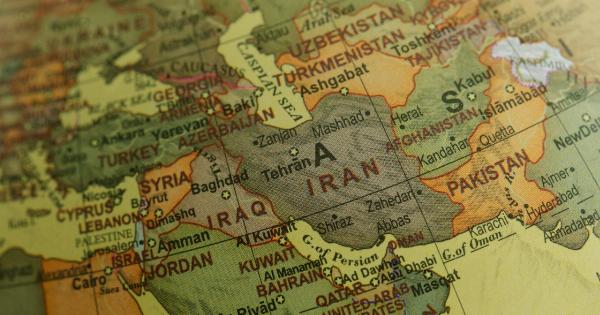Starting a family is a major life decision that requires careful consideration and planning. One of the key factors to consider is the age at which to start a family.
Many factors come into play when determining the best age to start a family, including biological, financial, and emotional factors. Recent research has shed light on the optimal age for starting a family, taking into account these various factors.
In this article, we will explore the findings of this research and discuss the implications for individuals and couples contemplating parenthood.
Biological Factors
One of the primary considerations when deciding the best age to start a family is biological factors. Women have a limited window of fertility, with peak fertility occurring in the late teens and early twenties.
As women age, their fertility gradually declines, and the risk of complications during pregnancy and birth increases. Research suggests that women in their early to mid-twenties have the highest chances of conceiving and giving birth to a healthy child.
However, it is important to note that fertility varies between individuals, and some women may have no trouble conceiving later in life.
On the other hand, men have a much longer window of fertility compared to women. While sperm quality and fertility may decline slightly with age, men can generally father children well into their later years.
However, advanced paternal age has been associated with certain health risks for offspring, such as genetic disorders. Therefore, it is essential for men to consider their age as well when planning to start a family.
Financial Stability
Financial stability is another crucial factor to consider when starting a family.
Raising a child requires a substantial financial commitment, and being financially prepared can significantly reduce stress and provide a better quality of life for both parents and children. Research indicates that couples who have stable jobs and a solid financial foundation tend to experience fewer financial hardships when raising children.
It is generally recommended to have a stable source of income and sufficient savings before embarking on the journey of parenthood.
Furthermore, starting a family at a younger age may provide more time to establish a career and improve financial stability.
Couples in their late twenties or early thirties often have a head start in terms of financial stability compared to those who start a family at a later age. However, this does not mean that individuals who are not financially secure should delay starting a family indefinitely. With careful planning and budgeting, it is possible to raise children even with limited financial resources.
Emotional Readiness
Emotional readiness is another critical aspect to consider when contemplating parenthood. Starting a family requires a tremendous amount of emotional maturity and readiness to take on the responsibilities of raising children.
Research suggests that individuals who are emotionally stable and have a strong support system in place tend to have a more positive experience when starting a family.
While there is no definitive age at which someone becomes emotionally ready for parenthood, it is generally recommended to wait until one feels secure and prepared for the challenges that come with raising children.
This readiness can come at different stages of life for different individuals, and it is important to listen to one’s instincts and ensure that both partners are on the same page emotionally before starting a family.
Social and Cultural Factors
Social and cultural factors can also influence the decision regarding the best age to start a family. In some societies, there may be societal pressure to start a family at a young age, while in others, delaying parenthood may be seen as more favorable.
It is essential to consider one’s social and cultural context when making this decision and to weigh the opinions and expectations of family, friends, and community members.
Furthermore, societal norms and expectations regarding career development and education may play a role in the timing of starting a family.
Some individuals may choose to prioritize their professional goals before starting a family, while others may decide to balance both career and parenthood simultaneously. It is crucial to find a balance that aligns with personal values and goals.
The Optimal Age for Starting a Family
While there is no one-size-fits-all answer to the question of the best age to start a family, research suggests that the optimal age range for women is between 25 and 35.
Women in this age group are likely to have higher fertility rates and a lower risk of pregnancy complications compared to those who start a family at younger or older ages. Additionally, by this age, many individuals have established their careers and achieved a certain level of financial stability.
For men, the optimal age range for starting a family is slightly broader, extending into the late thirties or early forties.
However, it is worth noting that advanced paternal age has been linked to increased risk of certain genetic disorders, so men should be mindful of the potential health implications for their offspring.
Conclusion
Deciding when to start a family is a deeply personal decision that depends on a variety of factors, including biological, financial, emotional, and social considerations.
While research indicates that the optimal age for starting a family for women is between 25 and 35, and slightly later for men, it is important to remember that everyone’s circumstances and desires are unique. Ultimately, the best age to start a family is the age that feels right for the individuals or couples involved, taking into account their personal goals, circumstances, and readiness to take on the responsibilities of parenthood.






























